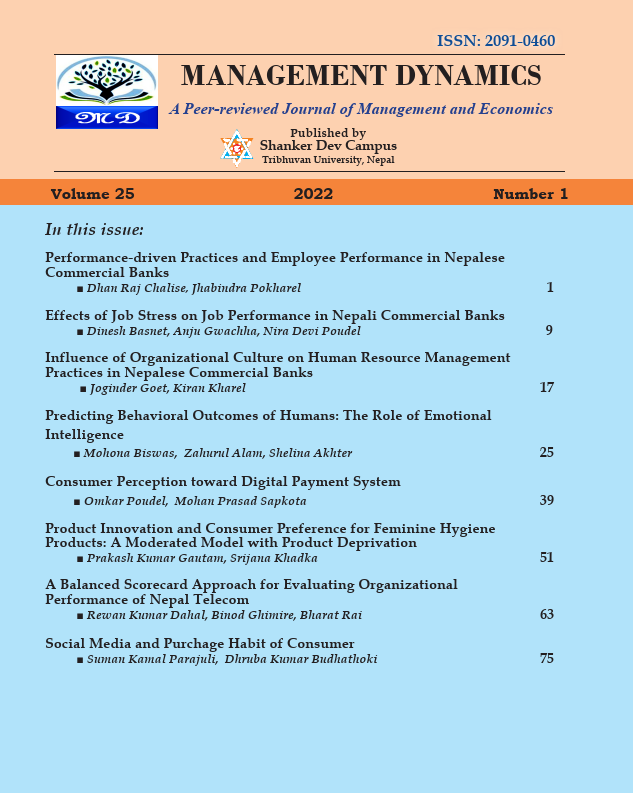Predicting Behavioral Outcomes of Humans: The Role of Emotional Intelligence
DOI:
https://doi.org/10.3126/md.v25i1.53282Keywords:
Emotional intelligence, Human resources, Deviant workplace behavior, Group cohesion, ProductivityAbstract
The powerful stimulator of desired human behavior is emotional intelligence. The current investigation makes an effort to look into the relative influence of emotional intelligence on the behavioral outputs of employees in diverse Bangladeshi organizations. The method of purposive sampling was used to collect responses from 412 participants. The author applied Emotional Quotient Index (EQ Index) as well as different measurement instruments to evaluate employees’ emotional intelligence and their behavioral outcomes at the workplace. The data were analyzed with descriptive statistics, Pearson correlation, and linear regression. Quantitative outcomes from this analysis demonstrated a favorable relationship between emotional intelligence and desired behavioral outcomes, specifically, group cohesion (r=0.72, p<.01) and productivity (r = 0.70, p <0.01). Results uncovered a significant negative relationship (r= -0.58, p <0.01) between emotional intelligence and deviant workplace behavior. These exclusive outcomes will move academics, decision-makers, and industry leaders from a variety of businesses to foster emotional intelligence in them in order to achieve more preferable working outcomes and to defend against undesirable deviant conduct.
Downloads
Downloads
Published
How to Cite
Issue
Section
License
Copyright © Research Management Cell, Shanker Dev Campus

